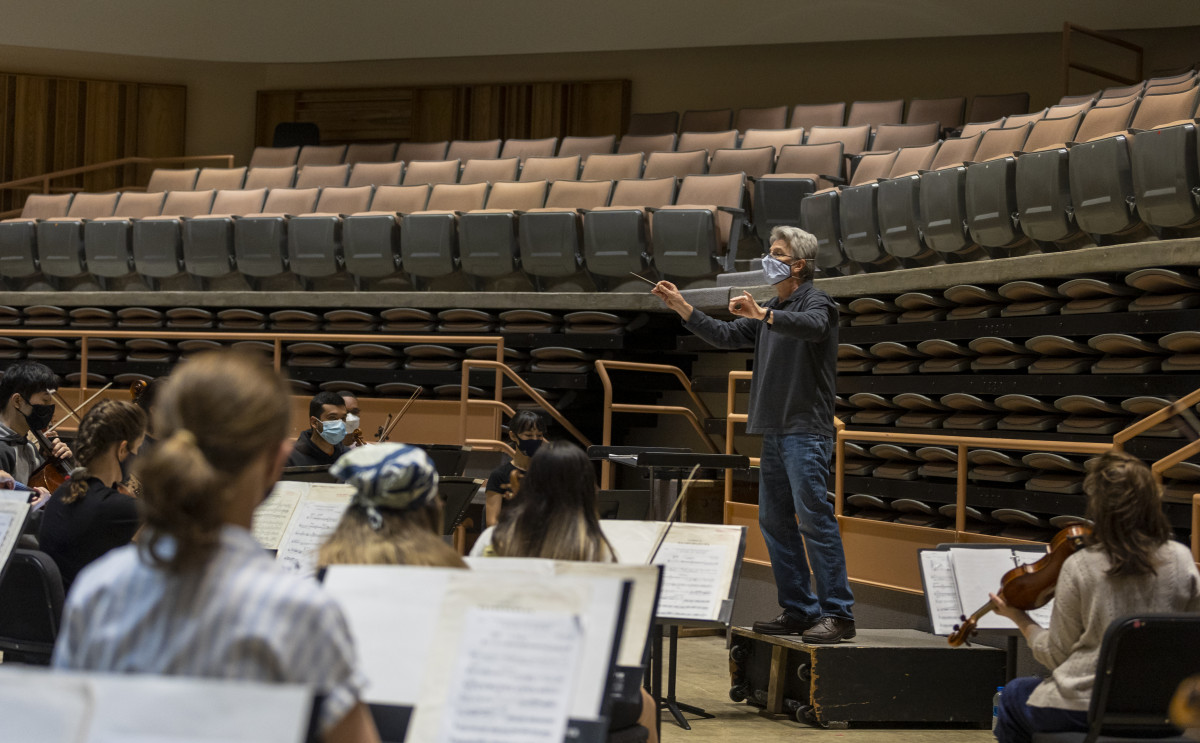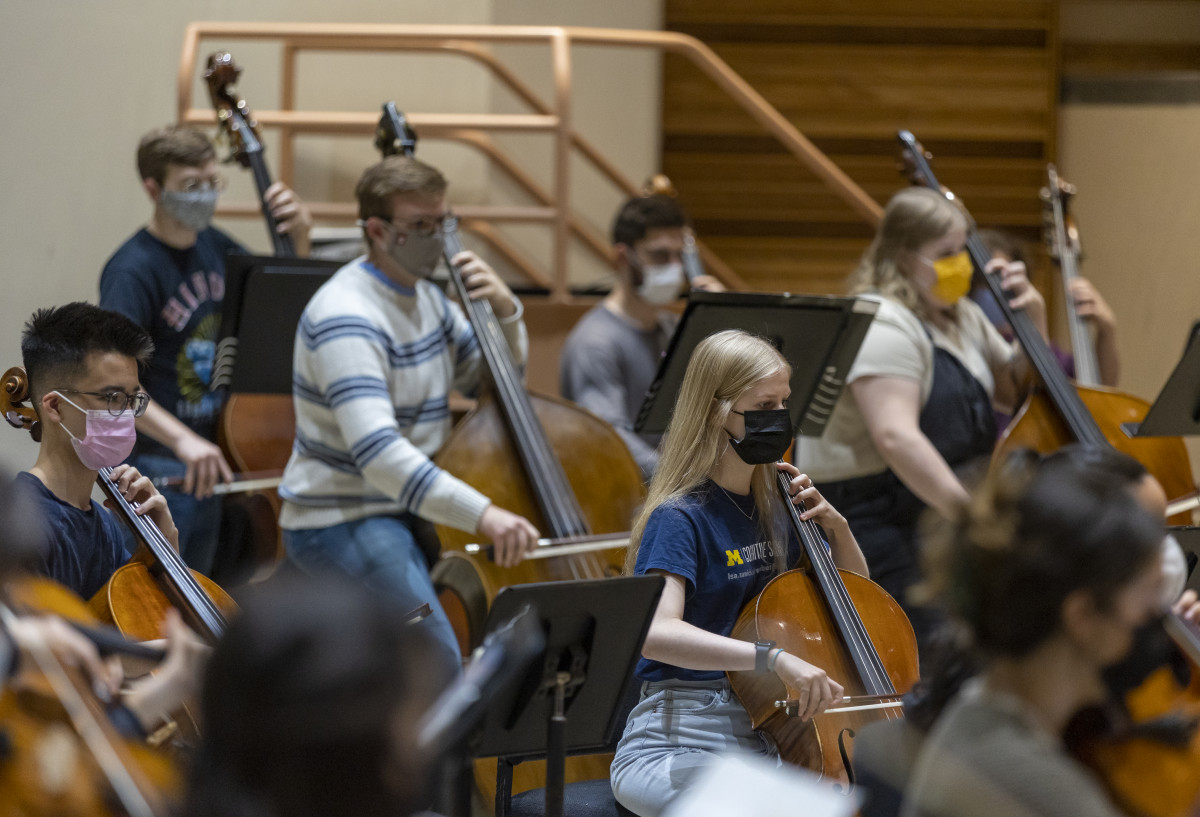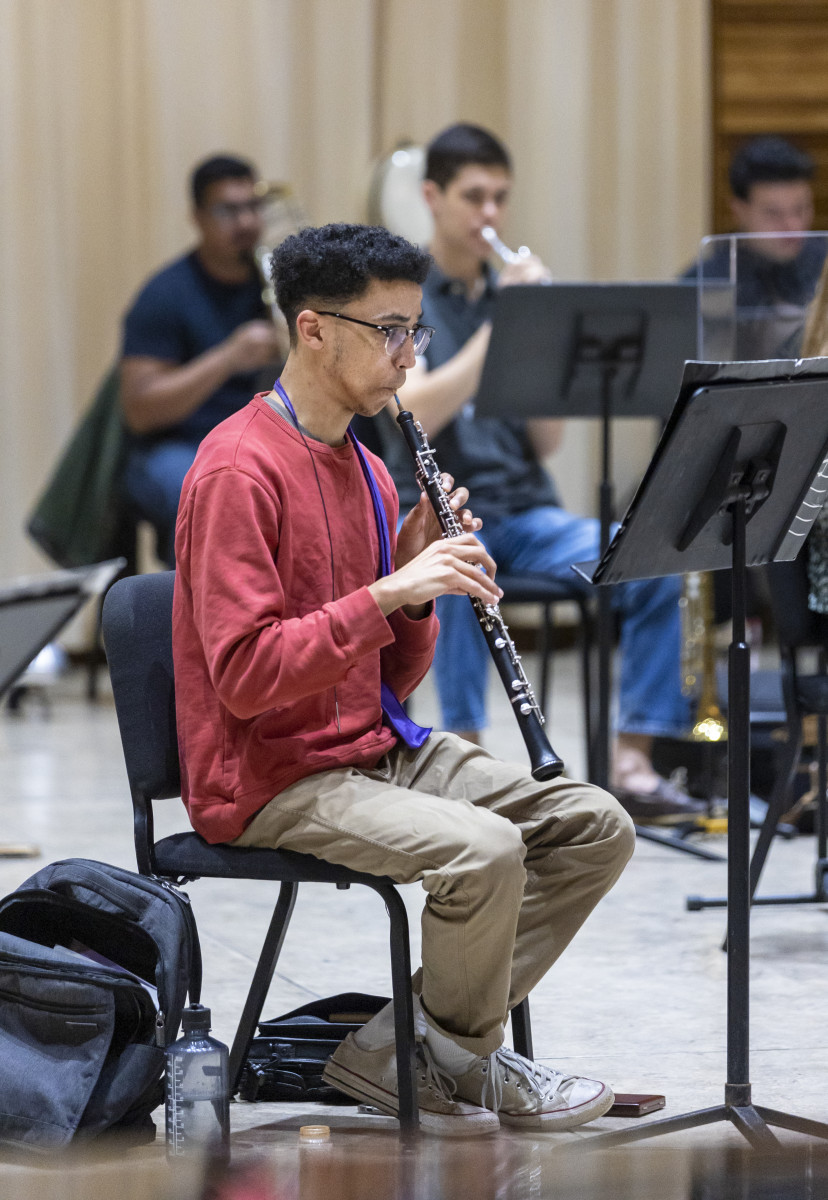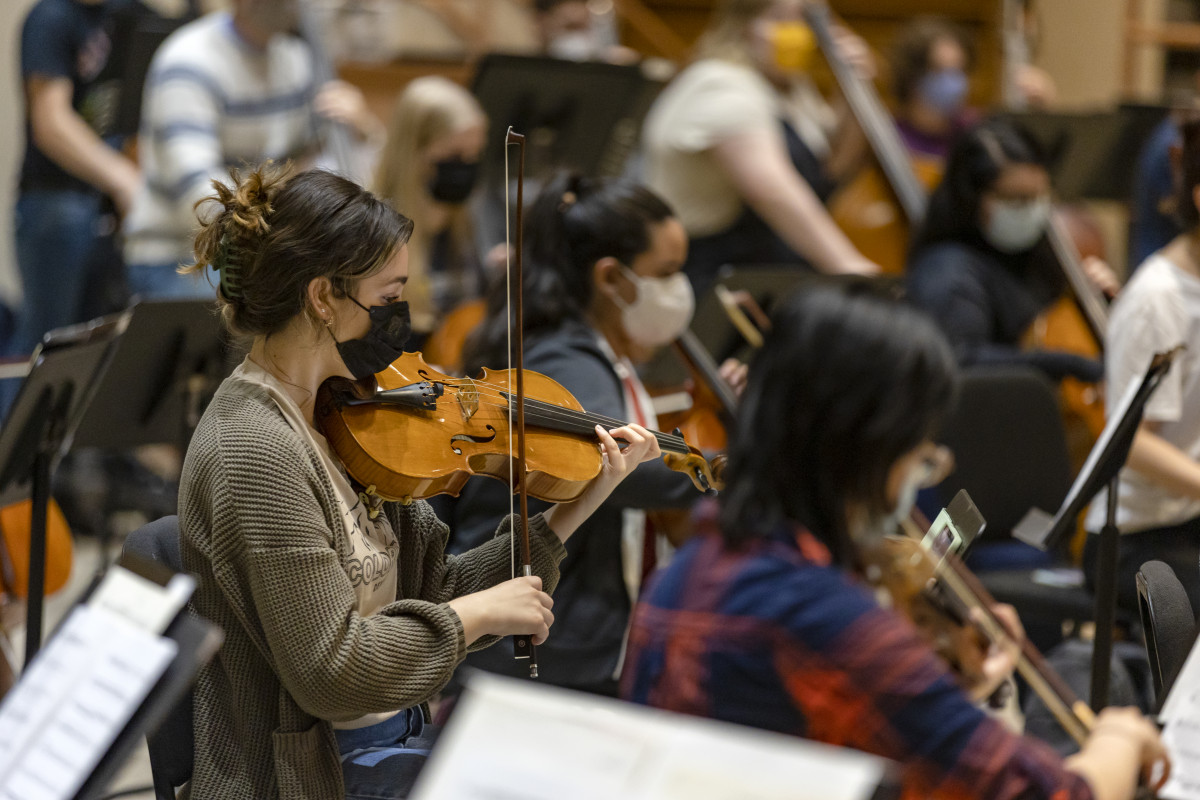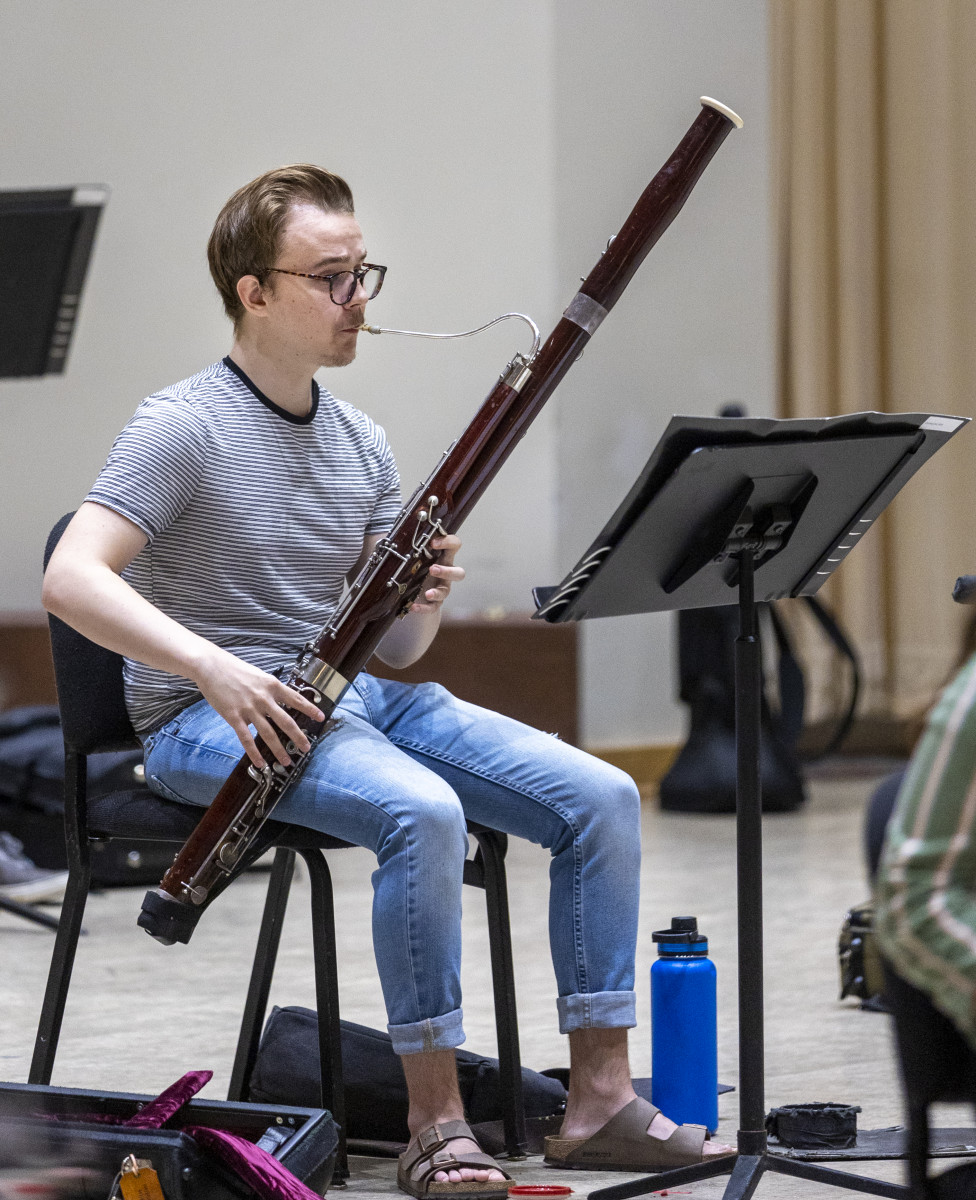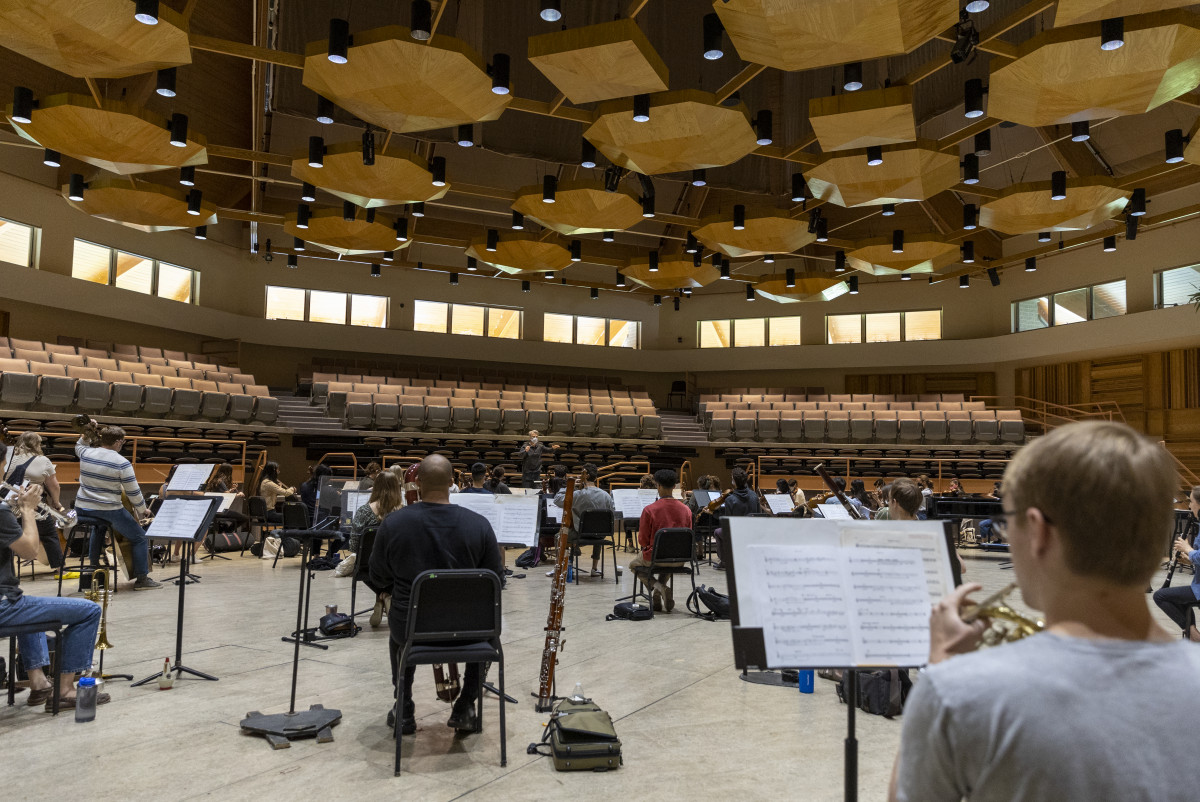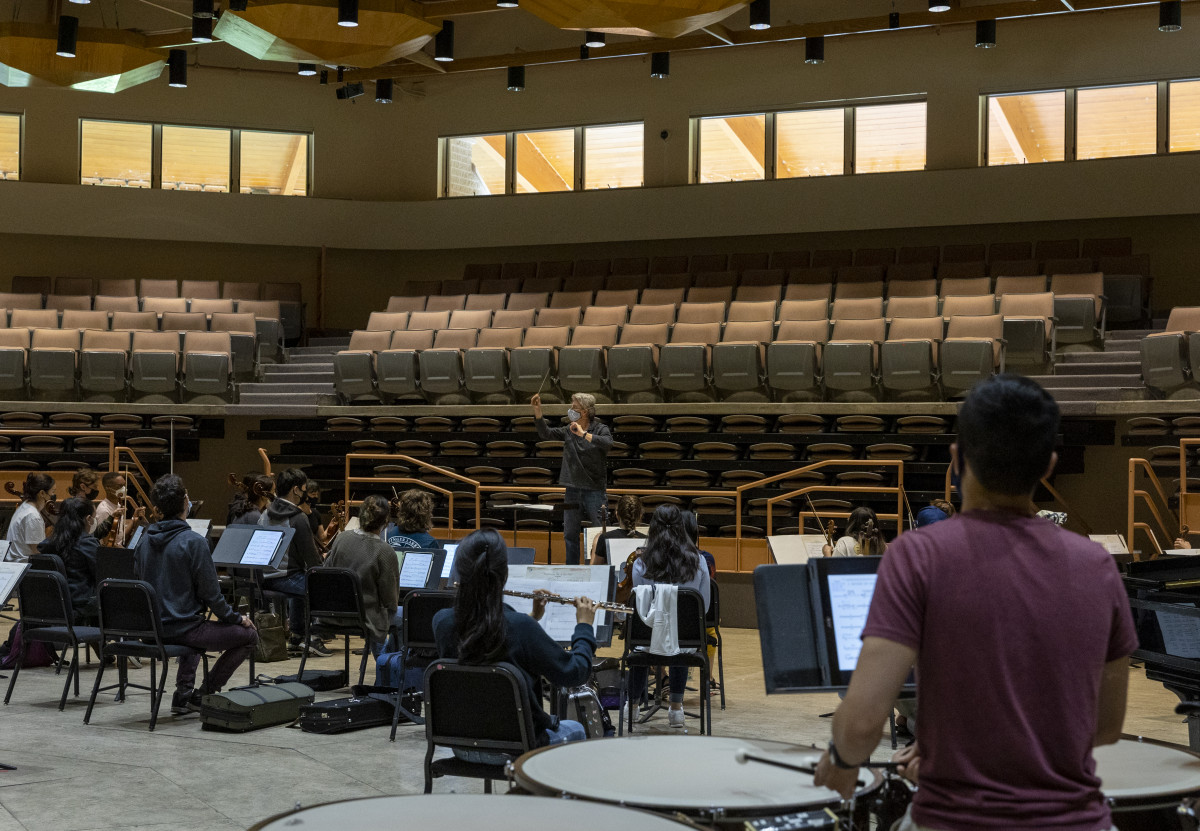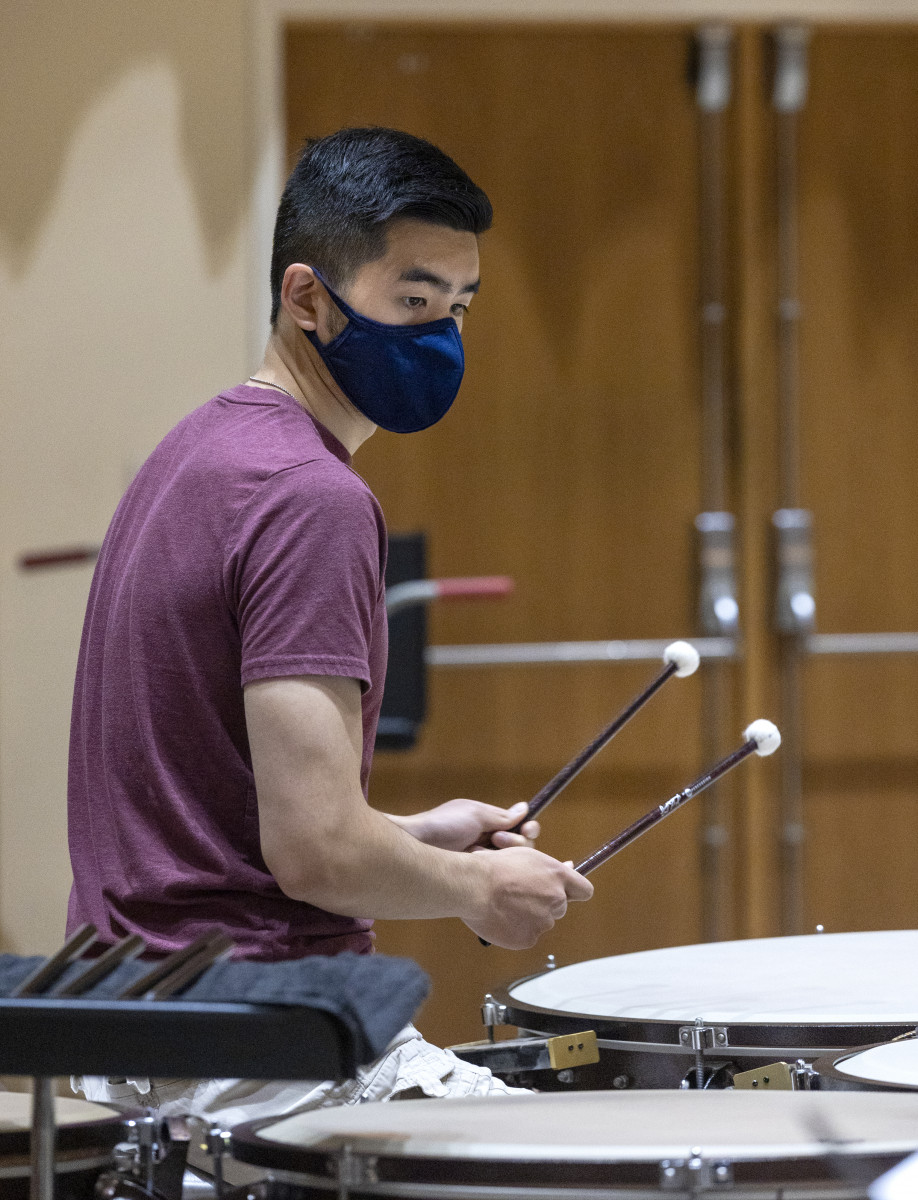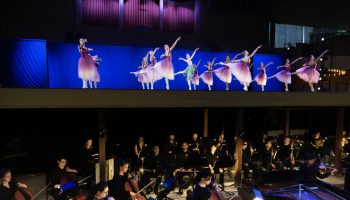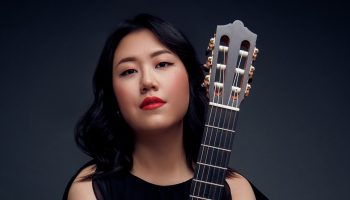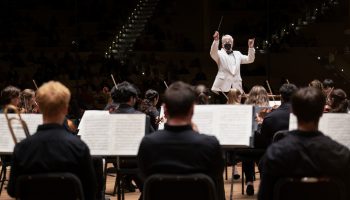The Music School Festival Orchestra will perform onstage for the first time in over a year at 8:15 p.m. Monday, June 28 in the Amphitheater. Musical and Artistic Director Timothy Muffitt will lead the orchestra with help from this year’s David Effron Conducting Fellow, Joshua Hong.
“A lot of us are super-excited to be playing with a full orchestra for the first time in a year and a half,” said violinist Natasha Kubit. “Even though we have to sit 3-6 feet apart from each other, it’s just so exciting to be able to hear woodwinds and brass again.”
The MSFO usually has over 80 students, but due to COVID-19 regulations, this year’s orchestra has just over 60 students. However, the orchestra will still fill the Amp tonight with the sounds of pieces by Weber, Harlin and Schumann.
“We have a smaller orchestra than we normally do,” Muffitt said. “Smaller orchestras are typically associated with music from the 17th and 18th centuries. But typically, the bulk of what we do in MSFO comes from the 19th, 20th and 21st centuries. So finding pieces that would give us a broad variety of musical style, as much as possible and fully engage all the members of the orchestra, was a bit of a challenge.”
The performance will open with Hong conducting Carl Maria von Weber’s Overture to Der Freischütz. From the 18th century, this three-act piece was considered one of the first German Romantic operas. The title, which translates to “Free Shooter,” tells the story of seven magical bullets provided by the devil, six of which are guaranteed to hit its mark and the seventh under the devil’s control.
“I think it’s such a good piece to open up the concert with,” said violist Sydney Link. “It starts off quiet and then just grows into this loud sound throughout the orchestra. There’s this really awesome horn quartet at the beginning. With our great horn section, it’s just such a great way to start our season off.”
The piece is not that long, hitting just around 10 minutes, but students said it’s full of energy.
“It’s very dramatic and has a lot of character and color,” said clarinetist Elle Crowhurst.
The next piece, “River of Doubt,” by American composer Patrick Harlin is not only a new style but uses unique sounds and instruments. Harlin will also be present in the audience tonight.
“This will be the first time that this piece will be performed in this capacity,” Harlin said. “It’s the first live performance that I’ve been able to attend after the pandemic, so that’s exciting.”
Harlin’s inspiration for this piece came from his expedition to the Amazon for his doctorate.
“I actually use recordings from the Amazon that I gathered when I was down there,” Harlin said. “It’s something exceptionally rare. I give each of the woodwinds and percussion bird calls that you would hear if you were down there. I give them the liberty to decide when they want to come in. As a unit, they create the Amazon bird calls while there’s conducted music going on. This gives you the sense of being down there.”
Harlin said “River of Doubt” is unique because of the deviation from the orchestra’s usual performance of romantic era and classical pieces.
“This piece blends soundscapes I recorded from the natural world with orchestral music, and I use some of those sounds as the musical material to make up the piece,” Harlin said.
This piece is something new — not just for the audience, but for the students, as well.
“I’m most excited for (“River of Doubt”) because it’s technically challenging, but it’s different from the classical standard sound that everyone’s used to hearing and what we’re used to playing,” Link said. “There’s something called a waterphone in this piece. It’s this round instrument that’s placed by percussion and you bow it with a bass bow. It makes this ethereal sound that’s like birds and animals that makes you feel like you’re in the rainforest.”
This new instrument depicts Harlin’s experience in the Amazon and seemingly transports the audience to the rainforest.
“The waterphone has a sort of haunting sound,” Harlin said. “What’s really interesting is that when you’re in the Amazon, oftentimes you hear one call and you hear it just once and then you never hear it again. I wanted to play off this idea of something that is a little bit haunting.”
The final piece of the concert is Robert Schumann’s Symphony No. 3 in E-flat major, op. 97, Rhenish. Schumann captures his feelings about the Rhineland and its atmosphere through this exuberant, relaxing and lyrical piece. Each movement captures different moods and scenes through blaring horns and gentle winds.
“The Schumann is a piece that really suits the size of our orchestra well,” Muffitt said.
For students, this return to the stage marks the beginning of an incredible season to come.
“After the first rehearsal, everyone was just giddy with the feeling of being able to play with a full orchestra again,” Crowhurst said.


